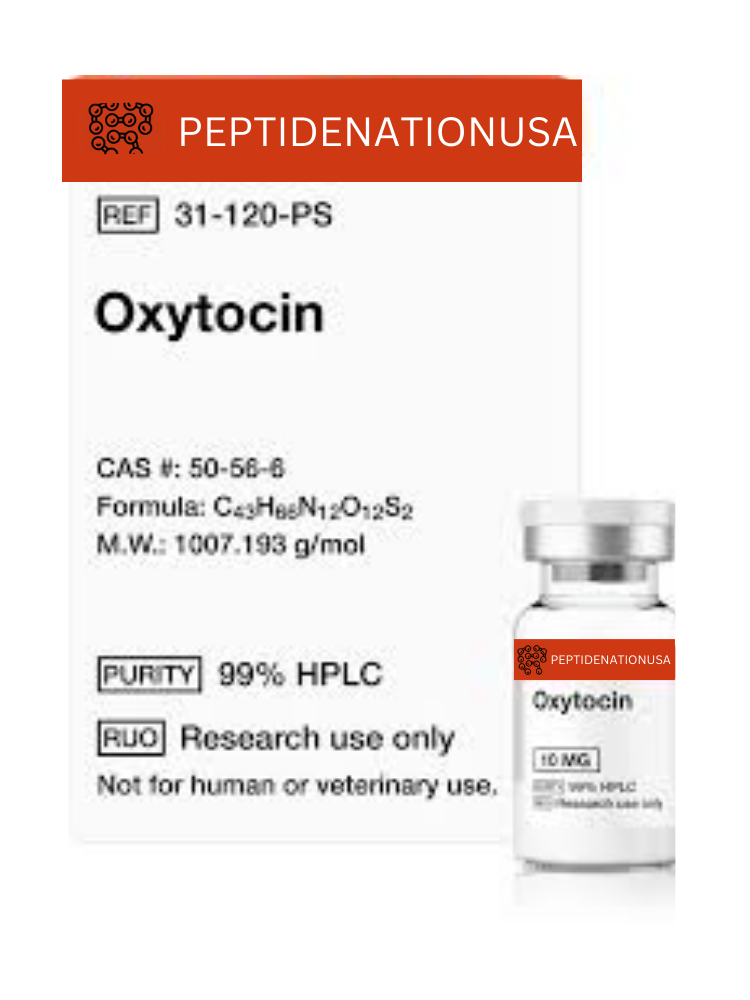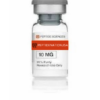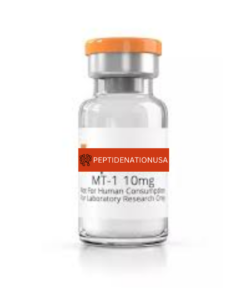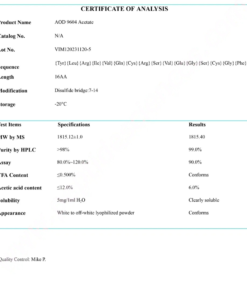Application
Biochem/physiol Actions
Oxytocin Acetate is a synthetic form of the naturally occurring nonapeptide hormone oxytocin, primarily synthesized in the hypothalamus. It plays a crucial role in stimulating uterine contractions during childbirth and facilitating lactation by promoting milk ejection. Beyond its reproductive functions, oxytocin is significant in modulating social behaviors such as bonding, sexual and maternal behaviors, and aggression. It has also been implicated in various non-social behaviors, including learning, anxiety, feeding, and pain perception.
Chemical Information:
- CAS Number: 6233-83-6
- Molecular Formula: C₄₅H₇₀N₁₂O₁₄S₂
- Molecular Weight: 1,067.25 g/mol
Synonyms:
- α-Hypophamine Acetate
- Oxytocic Hormone Acetate
Biological Activity: Oxytocin Acetate functions as a stress-coping molecule with anti-inflammatory, antioxidant, and protective effects, particularly in response to adversity or trauma.
Solubility:
- DMSO: 14 mg/mL
- Ethanol: 5 mg/mL
- PBS (pH 7.2): 5 mg/mL
Storage Conditions: Store at -20°C to maintain stability and potency.
| Quantity | 2mg * 10 vials, 5mg * 10 vials |
|---|
5 reviews for Oxytocin Acetate2mg | 5mg
Add a review Cancel reply
Related products
Peptides
Peptides
Peptides
Peptides
Peptides
Peptides
Peptides














Tyler Brooks –
Interesting effect on mood and social bonding. Subtle but effective
Natalie West –
Tested for behavioral response. Impressive results and no side effects
Justin Reed –
Improved mood and connection with others. A very curious compound
Brooke Allen –
Warm, positive vibe after use. Really interesting for emotional regulation
Caleb Watson –
Used in a neuro-lab setting. Results aligned with published studies.